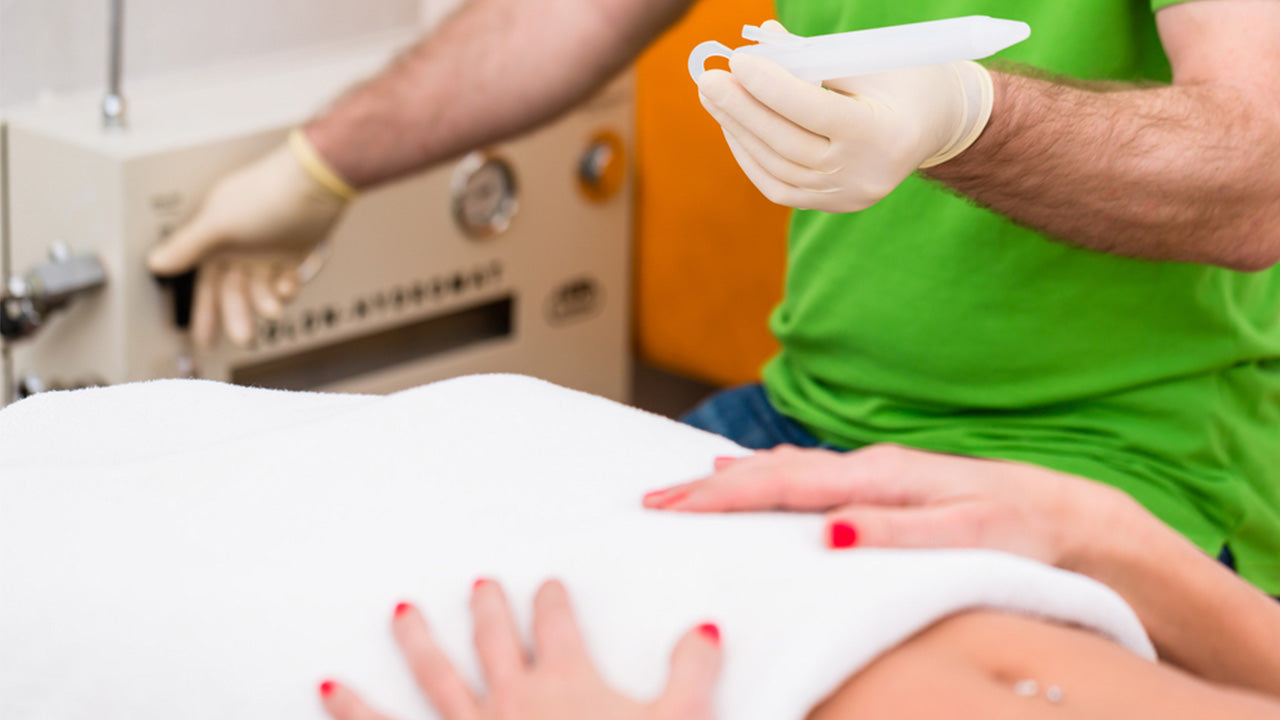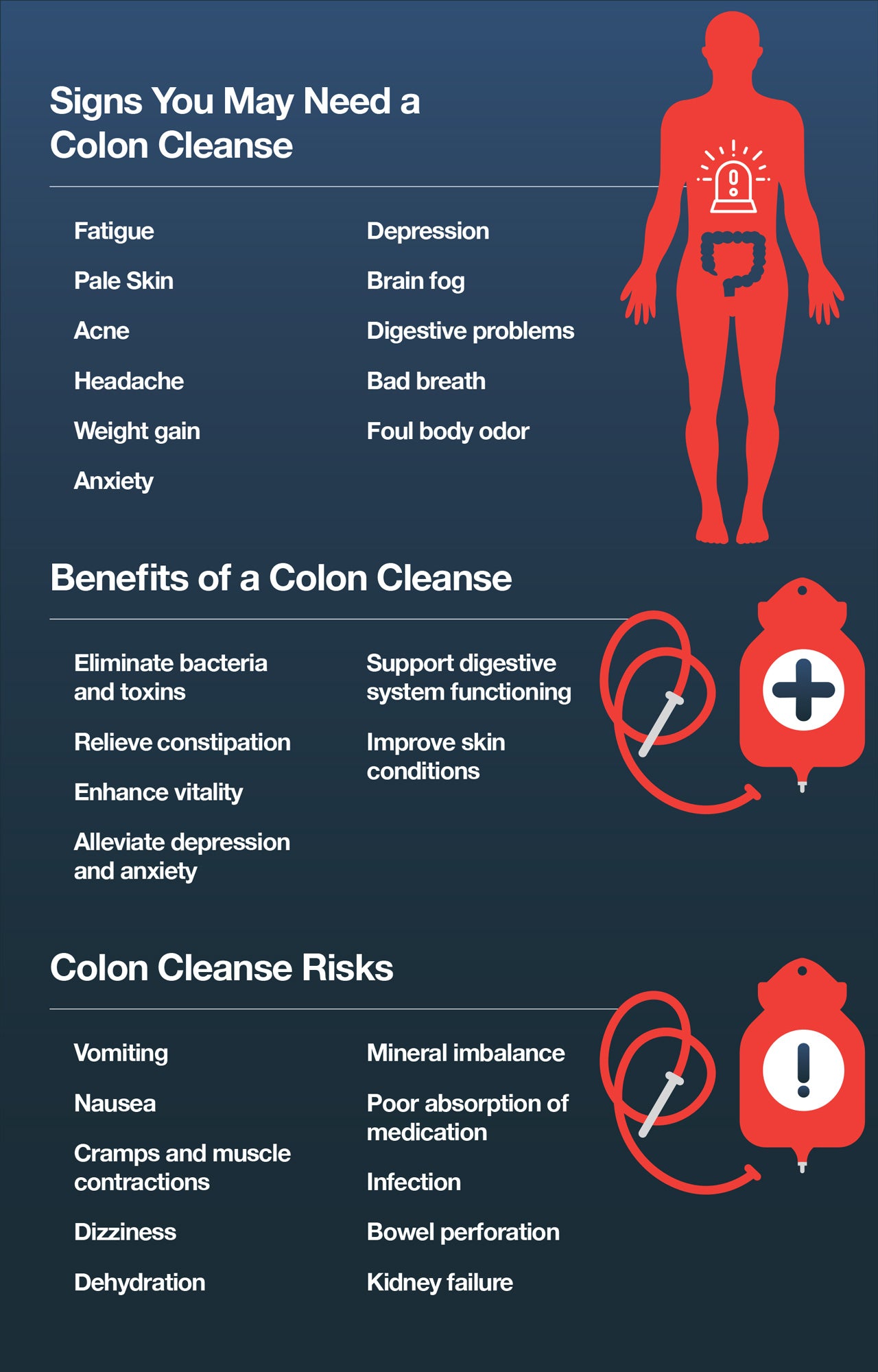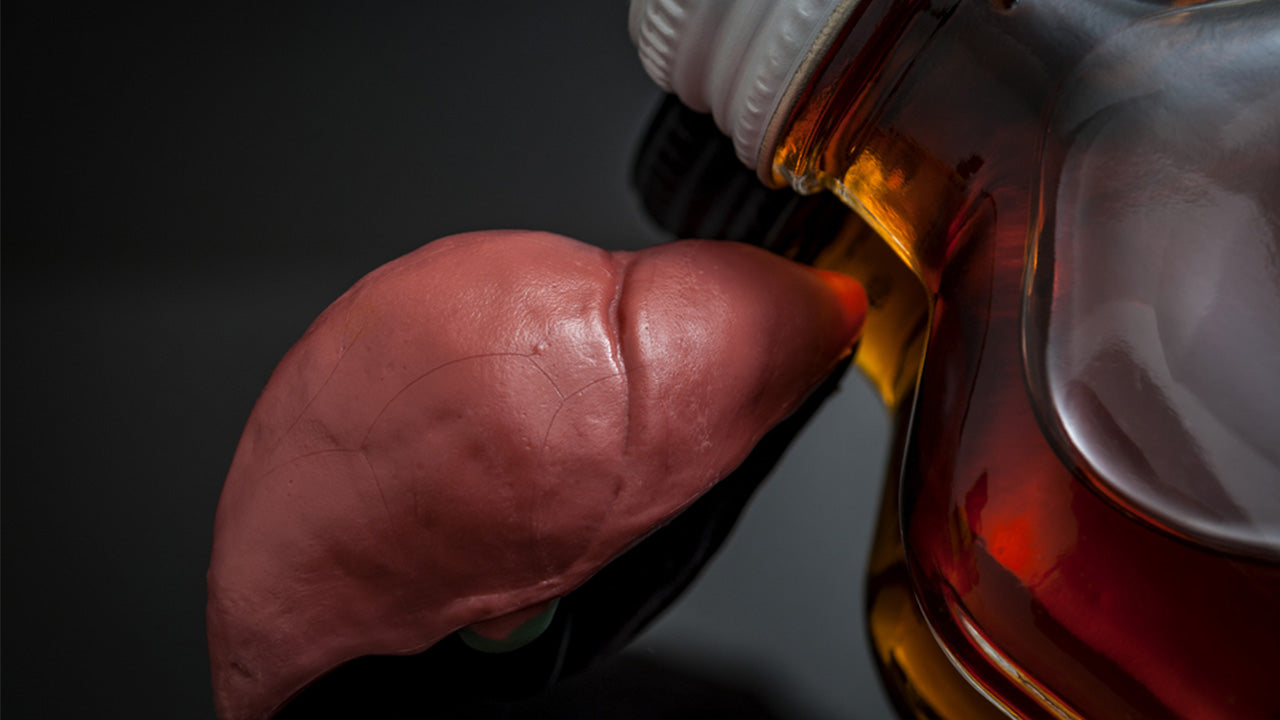The Benefits of Colon Hydrotherapy
 By: by Amino Science
By: by Amino Science

The practice of the colon hydrotherapy dates back thousands of years to Traditional Chinese Medicine (TCM), ancient Egyptian medicine, and Ayurvedic traditions. Today, colon cleanses are referred to as colon hydrotherapy, colonic irrigations, or enemas. The term colon hydrotherapy is merely another term for a colonic or an enema. It refers to using water to help heal the body.
Colonics use fluids, often purified water, to flush the colon of built-up waste. Undigested food and fecal matter can become impacted against the walls of the colon, which can cause a toxic overload in the bloodstream. Colonic hydrotherapy pushes water into the colon to rehydrate the impacted material so it easily releases from the body.
Colon hydrotherapy is conducted by a qualified, and in some states, licensed therapist. It is essential to check on the laws in your jurisdiction for licensing of colonic therapists. The FDA must approve all medical devices used in the session, and all equipment must be sterilized according to strict guidelines and regulations. Colon hydrotherapy is generally considered safe, and it can provide significant health benefits. The overall goal of doing a colon cleanse is to help the gastrointestinal tract more efficiently do its job.
Types of Colon Cleanses
There are two main types of cleanses for the colon—the enema and the colonic. Let’s examine the differences.
Enemas
An enema is done in the privacy of your own home. Water, or another fluid such as coffee, enter your colon with the help of gravity. It is a gentle process that does not reach the entire colon. Generally, an enema only targets the descending colon.
Enemas are generally used to relieve constipation or prior to certain medical procedures. A tube inserted into the colon from the rectum delivers the liquid that softens the stool. Most enema kits recommend using between 16 ounces and 32 ounces of liquid; this amount entering your body will likely cause some discomfort in the form of muscle spasms and cramps.
The goal is to hold the liquid in for 10 to 15 minutes to allow it to loosen stubborn fecal matter. Lying on your side and gently massaging your abdomen can help the process along. When you experience an urge to release your bowels, go to the bathroom and release.
Depending on your overall goal for the enema, you can use purified water, saline solutions, coffee, apple cider vinegar, or herbal mixtures.

You can also look into doing a coffee enema, which can help with detoxification.
Colonics
Colonics are performed by colon hydrotherapists in a therapeutic environment or treatment center. Instead of gravitational force feeding the water into the colon, an FDA-approved machine designed to allow you to relax throughout the procedure is used.
Most systems have you recline with your legs elevated to help the fluid reach deep into the colon. A nozzle is inserted into the rectum, and then the hydration can begin. Some machines may have two tubes—one that delivers the fluid and another that discreetly carries the impacted fecal matter out of the body. Other devices may only have one tube that delivers fluid. In this case, the release of the waste is done into a basin at the base of the unit. It is all very discrete.
Unlike an enema that may only use 16 ounces to 32 ounces of water, the amount delivered in colon hydrotherapy can be 10 times greater. Remember, colonics are targeting the entire colon, which is, on average, about 5 feet long and 3 inches in diameter. Like an enema, some discomfort is likely, including cramping and muscle contractions.
While the fluid is flowing into and out of your colon, your colon hydrotherapist may massage your abdomen to help facilitate the breakup and release of impacted fecal matter. The massage also serves as encouragement for you and your muscles to relax, allowing for a more significant release.
Colon hydrotherapy costs vary quite significantly depending on where you live. Individual colonic sessions can cost anywhere from $75 to $200 or more. Many therapists will recommend multiple sessions to be sure your colon is completely cleansed. If you are interested, be sure to ask before your first appointment as the clinic may reduce fees for packages.
Allow between one hour and 90 minutes for your initial session. When you book your initial session, the colon hydrotherapist may provide you with preparation tips, including foods to avoid.
How a Colon Cleanse Works
The colon is the longest part of the large intestine. It joins the small intestine to the anus. The colon serves vital functions—its job is to remove bacteria, unabsorbed nutrients, partially digested foods, and stool from the body. Sometimes, perhaps due to diet or an underlying medical condition, the fecal matter becomes impacted on the walls of the colon. While this can cause discomfort, the more concerning aspect of the impacted fecal matter is that toxins and bacteria can then leach into your bloodstream.
A colon hydrotherapy session works by rehydrating the dried fecal matter. The massaging of the abdomen helps to break the waste up quickly, allowing it to release from the sides of the colon and leave the body safely.
Sometimes a colonic or an enema is prescribed by a doctor before you have a surgical procedure or a medical procedure like a colonoscopy. A colonoscopy requires the colon to be completely clear from any waste.
If you are considering using colon hydrotherapy for weight loss, be sure to speak to your therapist about your expectations. While the scale may show you’ve lost some weight after a colonic, this is a reflection of the amount of impacted waste you’ve released—not fat. Colon hydrotherapy is not a solution for long-term weight loss.
5 Signs You May Need Colon Hydrotherapy
Just as high blood pressure is called the “silent killer” because of the lack of symptoms, impacted fecal matter in your colon probably won’t cause overt symptoms. However, if you are experiencing any of the following, you may want to explore colon hydrotherapy.
1. Your Digestive System Struggles
If you have chronic flatulence, burping, bloating, heartburn, cramping, constipation, acid reflux, or if you are passing undigested foods in your stool, a colonic may be a good idea.
2. You Aren’t Having at Least One Bowel Movement a Day
If you have to think about when you had your last bowel movement, you may be constipated. Or, if your gastrointestinal tract is sluggish in moving foods through your body, a colon hydrotherapy session may help.
3. You Are Concerned About Your Toxic Load
Removing impacted fecal matter from your colon can reduce the overall toxic load in your system. If you consume a diet low in fiber and high in processed foods, the bacteria in your colon may be leaching into your body.
4. You Want to Address Underlying Health Concerns
If you are concerned about an underlying health condition, including edema, hemorrhoids, chronic fatigue, chronic pain, sleep disorders, insomnia, anxiety, or you are gaining weight, you might want to try colon hydrotherapy to release the congestion in your colon.
5. You Feel Chronically Bloated
Feeling bloated is more of a female thing than a male thing. But, when bloating is caused by poor digestive functioning, it doesn’t discriminate. A colonic may help to relieve the discomfort.

4 Benefits of a Colon Cleanse
Clinical researchers have not spent much effort evaluating the effectiveness of colon hydrotherapy. However, cleansing the colon has been practiced by multiple native populations for thousands of years. And today, you can find experienced colon hydrotherapists in virtually every major city. The reason? Because patients experience an improvement in symptoms. Here are the top four potential benefits of colon hydrotherapy.
1. Removal of Bacteria and Toxins
The theory of autointoxication is an interesting one. By name, it suggests the idea that we are causing our own toxicity. And in many cases, this is true.
Autointoxication in medical terms actually means that we are being poisoned from the inside by impacted fecal matter that releases toxins into our system every day. The typical American colon is home to undigested meat, mucus, toxins, and frankly just gunk. Although changing your diet to include fiber-rich fruits and vegetables can help, jumpstarting the process of the detox with a colonic may be advantageous.
2. Enhanced Vitality and Less Depression and Anxiety
When impacted fecal matter is released, many people experience a physical, and emotional, renewal. If you have anxiety, depression, or another mood disorder, cleansing your colon may give you the boost you need. Our bodies are connected and interconnected—and that is especially true of our gut-mind connection.
According to Harvard Medical School, the brain directly impacts the stomach and intestines and the digestive tract sends SOS signals to the brain. This has led researchers to acknowledge that intestinal distress can cause anxiety, stress, or depression—or vice versa.
3. Improve Digestive System Functioning
Relieving the colon of unnecessary fecal matter may help other digestive organs work more efficiently. Once the colon is cleansed, digested (and undigested) foods move more quickly through your system after the nutrients have been absorbed in the small intestine. By removing the impacted fecal matter, you clear the path for better absorption of water and nutrients.
4. Improve Skin Conditions
Removing toxin-rich matter from your body may help to clear up stubborn acne and other skin disorders. Healthy, blemish-free skin is a sign your gastrointestinal system is working well. The truth is our guts and our skin are linked. In fact, in a study published in the journal Frontiers in Microbiology, researchers indicate that poor gut health is directly linked to a variety of inflammatory skin diseases including acne, psoriasis, and atopic dermatitis.
Precautions and Risks of Colon Cleanses
Natural colon hydrotherapy and enemas are generally considered safe, but as we all know, natural doesn’t always mean safe. It is important to understand that the FDA does not regulate colon-cleansing products, including supplements and enema fluids.
They do, however, regulate enema kits as Class I medical devices and colonic machines as Class II medical devices. When selecting a colon hydrotherapist, be sure to verify your state’s laws regarding practitioners, licensing, and insurance requirements.
In addition, as colon cleanses remove bacteria from your colon, it is vital that in the hours and days following the treatment you replenish your digestive tract with healthy/friendly bacteria. Take a high-quality probiotic supplement and add some probiotic-rich foods to help restore healthy flora levels in your system.
Side effects of a colonic are typically mild and may include:
- Vomiting
- Nausea
- Cramps
- Dizziness
- Dehydration
- Electrolyte imbalance
- Poor absorption of medication on day of procedure
- Infection
- Bowel perforation
- Kidney failure
Prior to doing an enema or having a colonic done, speak to your physician if you have any of the following underlying health conditions:
- Diverticulitis
- Ulcerative colitis
- Crohn’s disease
- Severe hemorrhoids
- Tumors in the colon or rectum
- Recent bowel surgery
- Kidney disease
- Heart disease
- Irritable bowel syndrome
Best Practices to Clean Your Colon
Undoubtedly the best way to get your colon clean and to keep your colon clean is through a healthy diet. Here are some healthy-colon tips:
- Remove processed foods, artificial sweeteners, fast food, MSG, artificial colors and flavors, and preservatives from your diet.
- Add multiple fermented foods that are rich in probiotics to your diet. Mix it up and include yogurt, kombucha, kimchi, and sauerkraut in your daily rotation of healthy foods.
- Enjoy high-fiber foods. It is important to include a mixture of insoluble fiber and soluble fiber as they behave differently in the digestive tract.
- Add fruits high in pectin to your diet. Throw a handful of berries into a smoothie, or enjoy a fresh apple or pear as a snack. Pectin is a healthy fiber that keeps the colon clean.
- Eat plenty of healthy fats found in avocados, olive oil, coconut oil, and coldwater fish.
- Enjoy clear soups like bone broth and vegetable soups to give your gastrointestinal tract a break from heavy-duty digesting.
- Eat raw vegetables often. Eat a wide variety, including radishes, peas, green beans, leafy greens, and carrots, that are all packed with easily absorbed nutrients.
- When constipated, add a natural laxative when necessary. Good choices include collagen, magnesium, triphala, aloe vera, and psyllium husk.
- Support your overall health with a daily essential amino acid supplement.

Up to 25% off Amino
Shop NowTAGS: natural cures
Join the Community
Comments (0)
Most Craveable Recipes




 833-264-6620
833-264-6620



















